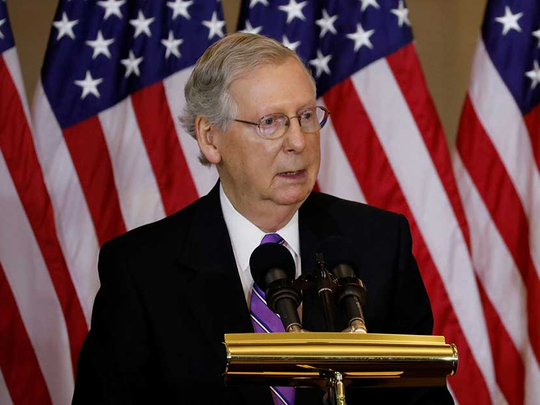
Democrats in the US intend to bring their voting rights agenda to the Senate floor this month. One bill they’re backing would restore provisions of the 1965 Voting Rights Act that have been stripped out by the Supreme Court, making that landmark law’s protections against racial discrimination almost impossible to enforce. The other is a grab-bag of measures called the Freedom to Vote Act, which would make voting easier and gerrymandering harder, and would also provide new ways to fight misconduct in counting the vote. Majority Leader Chuck Schumer has floated a Jan. 17 vote on an exception to Senate rules dubbed a “carve-out” that would give legislation designed to ensure democracy protection from filibusters, meaning that such bills could be considered and passed with simple majority support.
So far, it still seems unlikely that Schumer can find the votes. West Virginia’s Joe Manchin, who negotiated the Freedom to Vote bill with other Democrats, has been reluctant to support changes to Senate procedures, at least not without bipartisan support that isn’t going to materialize, saying on Tuesday that “anytime there’s a carve-out, you eat the whole turkey.” In other words, that any small change to the filibuster, which kills most legislation that doesn’t have 60 votes, would eventually end it. Congress scholar Sarah Binder responded on Twitter: “Talking turkey about the filibuster! Manchin is right on the mark that it’s a slippery slope towards majority rule with each carve out (or nuclear bomb). But also true that it can take a heck of a long time to finish off the bird!”
Minority Leader Mitch McConnell complained that changing the filibuster rules amounts to “genuine radicalism.” Democrats, he said: “Want to turn the Senate into the House. They want to make it easy to fundamentally change the country.” The question, however, is who the real radicals are.
Senate procedures have already been changed over the last 30 years, and McConnell has been the most important leader in those changes. Once upon a time - in the 1980s, say - the filibuster was used rarely, mainly to force negotiations. That’s changed. Since 2009, minority parties have created a true 60-vote Senate, in which everything is filibustered, which means that almost all regular legislation and even most amendments must clear that threshold. The real radicalism is filibustering everything. Especially doing so to kill bills rather than to gain negotiating leverage.
Greg Sargent and Paul Waldman note in the Washington Post how the extraordinary thing isn’t so much that Democrats can’t come up with the votes to change Senate procedures so that voting rights bills can pass with simple majorities, but that Republicans are simply rejecting any election reform at all (with one exception, Alaska’s Lisa Murkowski). I’d go farther than Sargent and Waldman, because what really should be shocking isn’t just Republican opposition, but that there’s not even any hint of a counteroffer. That’s the radicalism: The filibuster used not to negotiate, but to block.
And what are they blocking? The last time the Voting Rights Act was renewed, in 2006, the vote in the Senate was unanimous. Republicans proudly (and accurately!) liked to brag that their party was an important part of the coalition that passed the original Voting Rights Act in 1965 over the objections of Southern Democrats. Now, after the Supreme Court has struck down key enforcement provisions, Republicans are simply against repairing it.
The other bill, the Freedom to Vote Act, has plenty of legitimately controversial items in it, including a campaign-finance plan that I’d expect Republicans to oppose. But there’s no alternative Republican voting bill. No offer to, say, add a voter ID provision and subtract out campaign finance and maybe redistricting changes in order to win Republican votes. Nope. They have the filibuster, and they’re going to use it, and that’s the end of the story.
McConnell can say that eliminating the filibuster would be a drastic change. But he - and he’s the one most responsible, even though senators from both parties have gone along with it - has already made today’s Senate almost unrecognizable to anyone who knew it in the 1970s and 1980s. The best change in the Senate would be to return to a system where filibusters are used rarely, and mainly as bargaining leverage. But senators seem to have little interest in that kind of reform, and so eventually the filibuster will die and there will be nothing radical about that.
The question now is whether Democrats will start the ball rolling while they could still benefit from it.
Jonathan Bernstein is an opinion columnist covering politics and policy.
Bloomberg










